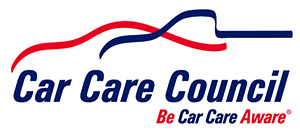BETHESDA, Md., July 12, 2016 /PRNewswire-USNewswire/ -- The Car Care Council reminds motorists that basic vehicle maintenance is an easy, inexpensive way to prolong the life of vehicles and avoid costly repairs down the road.
"When thinking about vehicle maintenance, regular oil changes likely come to mind first," said Rich White, executive director, Car Care Council. "A quick review of the why, when, where and how of changing your vehicle's oil is a good way to see the value of basic auto care."
Why
Motor oil lubricates the moving parts in your engine, preventing wear by keeping the engine clean, removing contaminants and regulating engine temperature to prevent overheating. Neglecting to check and change your vehicle's oil can lead to expensive repairs, including engine failure.
When
Check your vehicle owner's manual; most will recommend changing the oil every 3,000 to 5,000 miles. However, other factors such as harsh weather conditions, driving in stop-and-go traffic or on dusty/dirt roads, towing a trailer, driving at high speeds and the age of your vehicle can all bring down this time interval, making it a safe bet to have the oil checked at the lower end of the recommended interval.
Where
An oil change performed by a professional technician is a quick, low-cost vehicle service. When taking your car in for maintenance or repairs, be sure that the shop employs ASE certified technicians. ASE certification means that the technicians take their training seriously and have passed tests to demonstrate their skills.
How
Do-it-yourselfers can access the Car Care Council's website for an instructional video by Driverside on how to change your vehicle's oil.
To help drivers "be car care aware," the Car Care Council has many free tools available at www.carcare.org, including a free 80-page Car Care Guide and a customized service schedule with email reminders to make it easy to follow a routine auto care program.
The Car Care Council is the source of information for the "Be Car Care Aware" consumer education campaign promoting the benefits of regular vehicle care, maintenance and repair to consumers. For a copy of the council's Car Care Guide or for more information, visit www.carcare.org.
SOURCE Car Care Council
